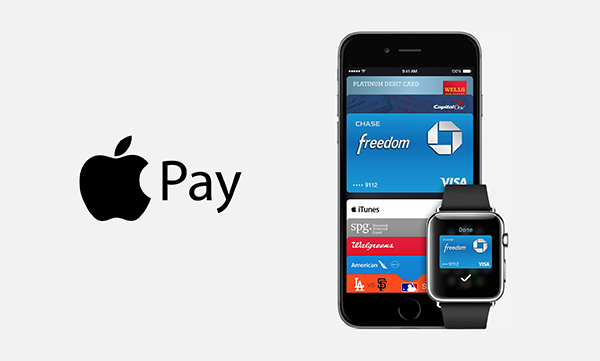Friday TechMunch: Is Apple Pay The Credit Card Killer?
Niamh recently discussed in her TechMunch blog about how consumers are becoming ever more demanding. As a nation we’re constantly on the lookout for slicker, simpler and more immediate services that work and we won’t hesitate to take our loyalty elsewhere if we find it.
For the payments industry, this desire for improvement couldn’t be more clear.
Apple made an announcement last week that will alter the UK payments landscape forever. As you may have heard, Apple Pay is officially coming to the UK after its successful launch in the US during 2014.
This is promising news for iPhone users as it could mean the end of credit and debit cards altogether.
So what is Apple Pay?
Apple Pay is a service that essentially turns your mobile phone into an electronic wallet. Users of the new iPhone 6 or Apple Watch will now be able to make payments in any participating shop via that device, and without the need for a bank card.

How does it work?
It’s the same technology used to make a contactless payment using a card. Whether you’re aware of it or not, contactless chips, or to go by the official name: “Near Field Communication” (NFC), have been installed in all Apple Watches and iPhone 6 handsets.
In July, Apple will activate these NFC chips allowing thousands of phones in the UK to make mobile payments. People wishing to use this new system will need to upload their card details into their device. From there forward, mobile payments can be made in the same way as contactless cards.
In its simplest form, this will mean that in-store payments can be made by waving an iPhone 6 or Apple Watch next to a contactless terminal.
Is Apple Pay the future?
Given that is hasn’t launched in the UK yet, it’s a little too soon to tell. However, it does look promising.
The service was introduced in the US last year, and although slow to take off, it seems to be doing quite well. The UK is in an even stronger position for mass adoption as we’re already using contactless bank cards, something that the US have fallen behind on.
With contactless payments already available and growing in popularity in the UK, our retail industry already has the compatible infrastructure in place for mass adoption to take place.
However, for Apple Pay to become the “future of payments”, they’d have to beat off the competition – which is fierce to say the least. Even at the dawn of this new financial innovation, Apple isn’t the only high profile player in the mobile payments ring – Google and Android recently unveiled their own competing services: Google Wallet and Android Pay.
As these additional services further tie consumers to a particular platform and device, the race is on for the tech giants to promote and prove the trustworthiness of their version of the payment solution.
Is it all good news?
As with any innovation, new and unknown territory comes with many questions and concerns.
The number one issue is, of course, security. People are understandably concerned that a stolen iPhone or Apple Watch could mean a stolen wallet and subsequently a rapidly diminishing bank balance. To address these concerns, Apple has put numerous security measures in place to avoid potential fraud, such as additional passcodes and limiting users to one payment at each vendor per day.
Apple Pay will also have a strict £20 contactless payment limit per purchase, similar to the contactless philosophy behind the contactless cards in use in the UK. Although many are divided on whether we should be responsible for increasing or lowering that limit, this rule has eliminated the possibility of traditional wallets becoming entirely obsolete, as larger payments will still need an old fashioned credit or debit cards.
The verdict
Apple Pay has a bright future ahead. Tim Cook stated in January that 2015 would be “the year of Apple Pay”, and with the strength infrastructure in the UK, this could well be true – at least for this side of the pond anyway.
However, as for the speculation of Apple Pay being the “future of money”, it’s evident that we’re some way off being able to rid ourselves of a traditional wallet altogether. What is more likely is that mobile payments will become an additional option for customers, rather than an outright winner.
Find Out More
-
Platinum CMS Award
March 13, 2024
-
Changing Communications Tack at Mobile World Congress
February 21, 2024


